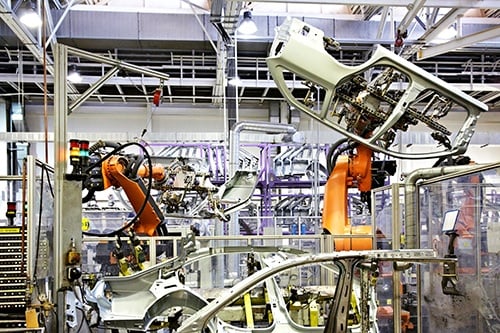
The results of AIAG’s groundbreaking new Quality 2020 report reveal five main challenges for OEMs and suppliers including Problem Solving, Customer-Specific Requirements (CSRs), Quality Management Systems (QMS), Product Development, and Loss of Experience. Here’s an overview of the survey results to help kick off a new article series, which will examine each challenge in depth.
While the auto industry has made great progress in the quality and reliability of the vehicles it produces, AIAG and Deloitte Automotive group’s new Quality 2020 study reveals that significant opportunities for improvement still exist in five key areas: Problem Solving, Customer-Specific Requirements, Quality Management Systems, Product Development, and Loss of Experience.
The report is the result of a joint effort by AIAG and Deloitte, which together conducted an in depth survey of automotive OEMs and suppliers and analyzed the results. In the Quality 2020 report, AIAG provides further perspective and draws accurate conclusions from the story the data had to tell. The results of the comprehensive study are highlighted in the Quality 2020 white paper, available for free download at AIAG’s website.
The Quality 2020 white paper provides a summary of the key findings, several exclusive interviews with OEM quality executives who comment on the study results, and a suggest path forward so that the study becomes a call-to-action supported and propelled by AIAG and its member companies.
The Five Key Issues in Automotive Quality Today
Survey results reveal OEMs and suppliers both rank Problem Solving and Customer-Specific Requirements (CSRs) as the most critical issues impacting quality. Quality Management System (QMS), Product Development, and Loss of Experience round out the top five issues as ranked by all respondents.
-
Problem Solving. OEMs and suppliers say problem solving is important because it impacts the organization’s ability to manage, monitor, and respond to quality-related events; their ability to implement operational efficiencies; and brand and customer relationships. Almost 95 percent of respondents believe closing the gap in problem solving would have a moderate to extremely high impact on quality.
-
Customer-Specific Requirements (CSRs). OEMs and suppliers both agree that Customer-Specific Requirements (CSRs) are a critical issue impacting quality. However, suppliers are most concerned with their ability to standardize business processes and systems while OEMs were concerned with managing customer expectations and relationships.
-
Quality Management System (QMS). Respondents agree that standardization is the #1 area impacted by complex and redundant QMS requirements, which also affects operational efficiencies, relationships, and ability to respond to quality-related events. About 96 percent of respondents expect a moderate to extreme impact on quality if standardization of QMS were improved and the complexity of standards and requirements were reduced.
-
Product Development. Survey respondents agree that assuring product compliance is the top reason why product development is important. OEMs also feel this issue is important to innovation and to sustained quality performance, while suppliers place greater emphasis on product development’s impact on their ability to manage profitability. OEM and supplier respondents are in complete agreement that the top two sources of complexity and risk are unrealistic specifications and the concern that at times, system validation occurs at launch.
-
Loss of Experience. Survey respondents indicate that a lack of skilled workers, compensation that does not meet requirements, and little incentive for young people to select careers in automotive are long-term concerns that may impact automotive quality. More than half of respondents expect a high level of risk to the industry if no actions are taken to close the gap between the current rate at which the industry is losing experienced workers versus its ability to attract and replace these workers with new talent.
Quality 2020 is a reflection of the automotive quality culture of today and an illumination of where the industry needs to take action. In the white paper, quality executives commenting on the study note that improvement is only possible if automotive companies are willing to put resources behind the plan, get engaged, and address the concerns.
In upcoming issues of this e-newsletter, specific findings and statistics on each of these five areas will be examined in more detail. If you’d like a better understanding of the quality issues facing OEMs and suppliers today, don’t forget to download your free copy of the new Quality 2020 white paper.



